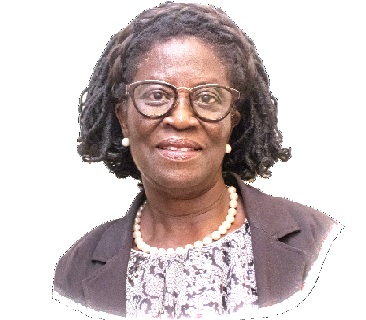
Dementia: Next aging ailment to watch out for
It is a Latin word defined as “out of mind”. It did not use to be that common. Even if it did, dementia, simply explained as a disease of the brain which commonly starts with memory loss or forgetfulness and progressively leads to loss of social and occupational function, was less known.
Advertisement
Today, it has become very common and so close at one’s doorstep. Sadly, one hears about friends and family members duly afflicted and looking helpless. Many seem to be at risk.
So, who is particularly predisposed to this dreaded acquired syndrome breaking the hearts of families and friends?
According to experts, it is a disease of the aged, seen mainly in older people who are usually in their 60s and above. Incidentally, women are said to be more pre-disposed, compared to men in the same age brackets.
Due to the very little information on the disease, people tend to leave the symptoms too late for medical intervention, to the extent that families and friends whose loved ones get afflicted become confused and worried.
Some lose hope not knowing what to do or where to turn to. It is, however, gratifying to know that a lot can be done at the onset of dementia to reverse or minimise its effects.
Talk on dementia
At a talk on dementia, organised by the Zonta Club of Accra in connection with the recent celebration of the UN Day for the Aged, Dr Winnifred Twum, a Psychiatrist at the Department of Psychiatry, Korle Bu Teaching Hospital, gave a comprehensive talk to members of the Club on dementia.
Dr Twum’s insightful talk, unveiled in simple language and understanding, included who is predisposed to the disease, the symptoms to look out for, the risk factors, the causes and the features.
She went further to explain issues on whether it could be prevented, some of the available treatments, the worst-case scenarios, with some practical tips on ways sufferers could be looked after.
Symptoms
The common symptoms or features of dementia is said to include memory challenges characterised by losing items, forgetfulness and repetition in conversation.
It can exhibit itself in one’s language where there is often a decrease in expressive language, such as, using phrases when words fail.
This person would use descriptions to get to what they mean, and therefore, using repetitive phrases, such as, “that thing”, “you know what I mean”, etc.
In extreme cases, a dementia sufferer may get lost even in familiar places or environment.
They would walk through their own front or back door, thinking they have stepped out for a walk, only for them to get lost and find it difficult to get back home, because they do not remember the route.
Sometimes, they do not recognise faces, not even their own family members or close friends. Sometimes, they are unable to connect something as simple as a comb and its use.
They may need increased amounts of time to perform tasks, make decisions without regard for safety, and show insensitivity to social standards including, modesty in dress, and political, religious or sexual topics of conversation.
The good news is that some of the early features could be minimised or reversed with medical help.
On the other hand, delayed attention could bring worse conditions that may affect the sufferer’s social connection including mood changes, psychosis, changes in personality, altered sleep and changes in eating habits.
Risk factors
Some of the risk factors which could be reversed in dementia are cardiovascular diseases, such as high blood pressure, diabetes, obesity, high cholesterol and depression.
Drug toxicity including alcohol, smoking, Vitamin B12/folate deficiency and infections such as HIV are also said to be risk factors that could be reversed.
Unfortunately, however, there are irreversible causes, which include vascular dementia, Alzheimer’s and Parkinson’s diseases as well as stroke.
Psychologists advocate early medical attention to attack the symptoms of dementia before they get out of hand.
However, if the unfortunate sets in and cases are not detected early enough for medical attention, with good care management, experts have expressed chances of hope.
Management
Such management options could be psychological or non-pharmacological. These may be accessed with cognitive stimulation using face name training, problem solving and conversational fluency activities.
There are other options, such as, music therapy, aromatherapy, recreational therapy that challenges the brain.
Depending on the individual case at hand, Doctors may also use pharmacological interventions to minimise effects.
Dementia is around and about. Like many acquired syndromes, the symptoms could be reversed or minimised right from onset. It is not a case of throwing in the towel.
Families, friends and caregivers are advised to seek help for sufferers under their care. After all, Psalm 71:9 in the good book says: “Do not cast me away when I am old; do not forsake me when my strength is gone”.
It is an age-related disease but it is reversible. Hope is not too far off.
Writer’s E-mail: [email protected]




